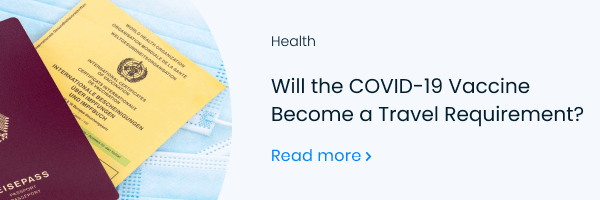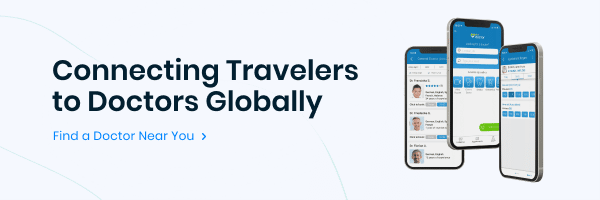Perhaps you are relocating, or you merely want another opinion from a different health professional on a medical procedure or diagnosis. To do this, you’re going to need to request your medical records.
While the legislation protecting your rights varies from country to country, no matter the reason, you are entitled to access a copy of your medical records.
Who Can A Patient Request Records From?
Patients can request medical records from their healthcare facilities and providers, including private practices, clinics, hospitals, urgent care centers, and nursing homes. You can also access your records from private and government insurance providers, as well as copies of completed test results directly from freestanding labs.
What Exactly Can Patients Access?
Note that you might encounter healthcare providers who say it’s not their policy to provide a copy of your medical record, but these medical providers either don’t know the law or are avoiding it.
In the United States, the right to access your medical records is protected by the Health Insurance Portability and Accountability Act (HIPAA), the federal healthcare privacy law. The HIPAA protects the rights of patients in America to see their health records, receive a copy of medical records (paper or electronic), and even request changes to any mistakes or missing information. This act also means you can have your medical records transferred to someone else. In addition to allowing access, this act also decides what medical facilities, healthcare professionals, and insurers must do to safeguard the privacy and security of a patient’s medical records.
So, if a state has its own law, does it overrule HIPAA? No. HIPAA defines the minimum rights patients have. So, technically, even if a state has another law, it cannot legally be enforced if it goes against what the HIPAA has set out.
In the United Kingdom, the National Health Service (NHS) advises that the request for health (medical) records should be made through the organization or data controller that holds your records. For instance, your general physician, optician, or dentist. When it comes to hospital records, patients can contact the records manager or patient services manager at the relevant hospital.

Can Patients Access Everything in Their Medical Records?
Patients can access most types of medical records. Essentially, healthcare providers own patients’ physical records, while patients own their medical information, which is why you have the right to access a copy of your records. The copy should include clinical notes, test results, medical scans like X-rays, and billing records like payments and insurance. Psychotherapy notes are typically excluded from requests.
How Long Should a Record Request Take?
According to the States’ HIPAA, no more than 30 days. But some state laws allow healthcare providers less time than that. For instance, in California and Maryland, requests cannot take longer than 15 and 21 days, respectively. Refer to this list for different state laws.
Similarly, the British Medical Association (BMA) states that once a request for medical records has been received and verified, that the patient must be provided with a copy within 28 days. There might be possible extensions to allow for the correct collation of data and information.
What Is A Reasonable Fee for Medical Records?
In the US, healthcare providers may not charge patients a fee for searching for or retrieving records. However, a reasonable fee may be charged for the costs of copying and mailing the records.
In the United Kingdom, legislative changes made to the Data Protection Act 2018 also states access to the records of deceased patients, and any copies, must be provided free of charge.

Can a Doctor Refuse to Give You a Copy of Your Medical Records?
In the US, the HIPAA states that a provider cannot deny patients a copy of medical records. If your request is denied or you feel your rights are being violated, you might consider lodging a complaint with the Office of Civil Rights.
The UK’s BMA allows requests to be denied if a request is ‘manifestly unfounded or excessive’. However, the patient must be given an explanation as to why. If you wish to lodge a complaint to the NHS, you can do that here.
In most cases, since medical records contain information pertaining to a patient, it is reasonable for them to have access to the records.
Can You Request Records for Someone Else?
Parents of minors and other legal guardians are viewed as proxies for the patients under their care, making it possible to access their records. Usually, only an authorized personal representative can request records on another person’s behalf. In addition, being married doesn’t automatically qualify you as a personal representative – your partner must authorize you. More information that here.
The most straight forward way to request access to your medical records is to visit the practice or hospital website. If your doctor uses a patient portal, this might be the best place to look. Most websites allow patients to submit a request for their records online. However, if the website doesn’t prove helpful, contact the office – each facility should have a record-request form, or at least you should be able to provide information on the process.
Useful Tips:
- If possible, it’s best to go paperless. It might only be possible to get a hard copy in some cases, but if a medical provider keeps electronic records, you’re entitled to an e-copy. Electronic files may be more beneficial since they’re easier to share with future healthcare professionals.
- It’s always possible that delays might occur, so preempt the possibility by requesting your records early. If you or a family member are being treated at a hospital, it is quicker to request your records before discharge.
- If you are switching doctors, and you need records sent from one doctor to another, it’s often easier to ask the new doctor’s office to make the request. Doctor-to-doctor requests are generally free, and it might speed the process up if you’re not part of the equation.
- Medical records might be lengthy, so focus on the essentials only. Take surgical records for example. This includes the radiology studies, blood work, admission report, the operative report, and the discharge summary. But you probably don’t need the body temperature readings.
- If you stay informed on current legislation for requesting medical records you can confidently navigate the process with this knowledge in mind. Also, don’t assume that all medical providers know the relevant laws.
If you are switching doctors and need to be matched with a new one in your area or a new country, Air Doctor can connect you with a qualified medical professional. Find out how it works here, or book a consultation through our app.











